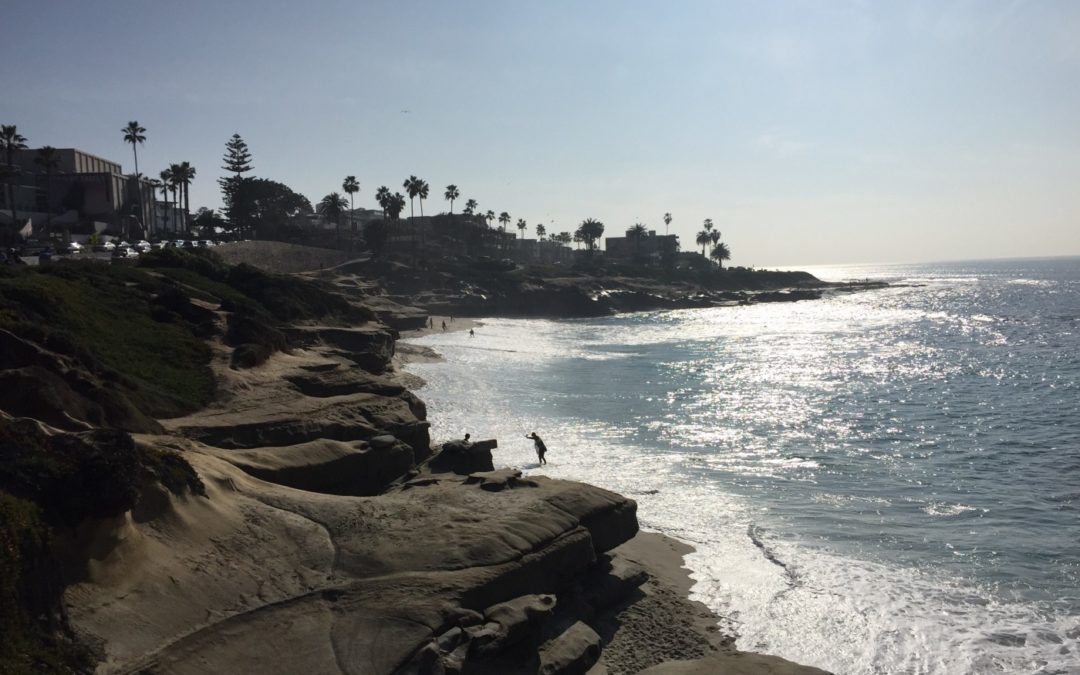It wasn’t until the stoic German executive popped open the champagne and began drinking straight from the bottle that I feared we might die in the next few minutes. We were approaching Florence airport but the air-traffic controller wasn’t responding. We were lower on fuel than anyone aboard would have liked, and while some people might have respected a $40 million private jet, gravity sure wouldn’t — at least, not if we were 15,000 feet in the air when the engines cut out.
The pilot radioed another airport, but something was wrong there, too — the runway was too short, the winds too fierce. The plane veered around, aiming in yet another direction. The German executive passed the bottle around. Bottoms up. I imagined the plane impacting into a picturesque Italian hillside, killing everyone onboard in a cinematic ball of fire. Not exactly a normal way for a middle-class kid to go out.
With what might have been minutes to spare, we found salvation via a tiny airstrip more than 200 miles north of our actual destination, a Tuscan villa once owned by the Machiavelli family. As we descended, I sorted through my backpack for my notebook and my passport, and wondered once again how I’d ended up in this weird job.
How It Started
For three years, I worked as what you might call a “luxury journalist.” This was back before the Death of Print, when magazines could charge $50,000 for a full-page ad, and even a title with a limited circulation could afford an office stretched across two or three floors of a Midtown office building. The job didn’t pay well, at least for those of us in our twenties who were only a few years into our respective careers, but it was a good way to explore the world on someone else’s dime. Like most of my young colleagues, I’d landed the gig through my previous clips, none of which had anything to do with plush leather seats or vests made from the finest alpaca.
Some trips (“junkets”) involved a dozen writers jetted off to some far-off locale to write about the golf courses and cuisine. In the van from the airport, you might find yourself squeezed between a laconic, middle-aged editor from the Robb Report and two associate writers from a Conde Nast magazine that paid them far too little. On other trips, you might be alone; more than once, I found myself shuffling around some strange city like Bill Murray in “Lost in Translation,” unsure of the local geography but desperate to avoid whatever relentlessly perky PR person had been dispatched to make sure I followed the offered itinerary down to the minute.
As with any job, if you worked it long enough, you learned the quirks. For example, the PR people charged with dispensing the fluff to journalists really, really hated the word “plastic” — especially if the plastic in question was part of an absurdly expensive item, such as a $50,000 timepiece.
“So, wait, you keep saying it’s a ‘customized, exclusive polymer designed to give off a faint hint of vanilla, but isn’t that… just plastic?” I once asked a rep from one of those luxury timepiece companies. “So for this fashion spread, can’t I just say… plastic?”
The gargling sound on the other end of the line suggested that the rep was having an aneurysm at the very thought. I ended up writing “plastic,” and my editor shrugged and let it through. In order to live with myself, I’d begun slipping a satirical edge into my articles — describing a private helicopter pad as an opportunity to escape to one’s Walden Pond, for instance — and I wasn’t about to play some PR rep’s little game.
No matter how muscular my prose style, large swaths of the job were fluff — pure, unmitigated fluff. People with $100,000 to burn on a three-day vacation weren’t going to depend on a magazine to determine their choice of resort, or which $20,000 jacket to wear to an event — they had assistants to decide that kind of thing for them. Genuine enthusiasts of high-end cigars and liquor often like reading about those things for the entertainment value, but a small article titled “5 Greatest Smokes for Summer” generally isn’t likely to sway their buying habits very much.
No, the biggest target for these magazines was the pool of “aspirational” readers, who didn’t necessarily have the money but dreamed that one day they might. The second-biggest target: the readers who might have just lucked into the equivalent of a tugboat full of cash (lucky stock options, lucky lotto ticket) and had no idea how to spend it (but they sure didn’t want to buy anything plastic). Thanks to those readers, the magazine industry had created something of a perpetual motion machine: money sloshed between the publishing houses and the ad houses and all the various contractors and companies in-between, and the hustle rolled merrily on — until it stopped.
The Big Crash
When the global economy crashed, I was on a movie producer’s boat somewhere in the British Virgin Islands. I wasn’t meant to be there; there had been a whole itinerary planned, something about villas and hotel suites and whatnot, but the PR rep in charge of the affair had gotten drunk and jumped on a plane to London without telling anyone. Somewhere far up the chain, someone had made frantic phone calls to someone else, and as a result, I was trapped with another journalist aboard a catamaran drifting around Necker Island.
My cell phone had no signal. We had nothing planned for the day, or the week, or the week after that. I sat on the trampoline netting stretched between the front deck’s extended arms, wondering what I would write about once I got home. The idea of churning out a slowly paced, existentialist piece about sailing — beach-bum Sartre — was somewhat appealing, but I didn’t want my overcaffeinated editor to throw me off a roof. I couldn’t even tell you whose phone calls had plopped me there. The boat’s crew was friendly, and we spent the bulk of the time talking and laughing and drinking with them as we drifted across the ocean’s infinite expanse.
When we finally landed in San Juan, I turned on my phone for the first time in days. Twenty voicemails, all of them frantic — from my editor, from my colleagues, from friends at other magazines across town. The markets had imploded, taking with them the illusion — if it had ever existed — that the system was built on hard work and ingenuity. The money drained out of most of the magazine business like water flowing down an open drain. Layoffs everywhere. The Great Financial Ruin of 2008 had arrived.
“Well,” I told the other journalist as we waited for our plane back to the States, “I guess we don’t have to worry about turning in any articles.”
The Flip Side
When you’re allowed a glimpse into the luxury lifestyle, you also see the privation, like the tarnished side of a coin. How the resorts in Caribbean islands and Central America have installed moats and lines of barbed wire, usually out of the guests’ lines of sight. How villas and luxury getaways have sprouted atop land once owned by someone who was ruthlessly “negotiated” out of their holdings. How the black car sent to fetch you slides past scenes of deep poverty in London, Milan, Tokyo, Havana, Miami.
Many of us were barely hanging on ourselves. “I’m driving a $500,000 car,” said a friend of mine, an editor for a luxury-car magazine, as he piloted a blue Rolls-Royce on a test drive down the West Coast, “and I have five bucks in my pocket.”
I knew luxury editors who had weekend jobs, who fought mice and cockroaches for the dominance of tiny uptown apartments, who debated whether to quit it all and do something else. The ones who worked at the biggest publishing conglomerates sometimes stretched out their food budget by swiping food from the test kitchens; a few snatched clothes, liquor, and whatever else was lying around after photo shoots. We had all come to publishing with dreams of writing something substantial, and while we appreciated being able to see how the One Percent lived, many of us came to see the travel as a good way to stay away from whatever passed for home.
During our off hours while on assignment, we often hung out with the drivers and chefs and personal assistants who, in their own ways, were also responsible for keeping the Wealth Machine running. Their jobs were much harder than ours: long hours, and not always the greatest pay. They saw some amazing things and went to some incredible places, but they also had to pin on a smile while engaging in unpleasant activities — nobody likes having to talk down to a drunk millionaire. Or wipe blood off marble.
Pretty quickly, the job shattered my middle-class myth that extreme wealth reliably correlates with hard work. I met a few millionaires and billionaires who had profited immensely from their labor — for example, a man who made a fortune from importing knockoff jeans into China during the 1990s, and used part of the proceeds to buy an enormous castle outside of Sienna — but the bulk of the ultra-wealthy with whom I interacted were either the beneficiaries of generational wealth, or they were plugged into some sprawling octopus of investments that could only be described in the vaguest terms.
The 2008 crash and the Great Recession impacted some of them. I knew one high-flying Wall Street guy, a self-described connoisseur of super-cars and timepieces, who was over-leveraged; within a few months, his luxurious circumstances had been reduced to splitting a crumbling two-bedroom apartment in Astoria, Queens. He’d worked hard and bet wrong on how everything was going to go. But for most, the teetering of the financial system didn’t impact them very much at all, at least not in the long term. Their holdings were enormous; their working lives, such as they were, existed in a whole different universe from ours.
Meanwhile, the magazine industry partially collapsed, and thousands of editors and writers and production assistants were on the street. People joked how that year’s crop of graduates from the Columbia School of Journalism might as well have sprinted from the graduation ceremony right into the East River — that’s how bad their job prospects were. We needed work, and some of us found it in other magazines, or the websites rapidly gaining readership (if not the same advertising dollars); some of us went into PR, where we were taught about all the words we couldn’t say to journalists or clients. It wasn’t the writing work that many of us had dreamed of doing, but it was still being paid to write.
Whenever I hear someone give advice about cutting back on lattes or avocado toast, I have to laugh. Work is hard, and hard work can sometimes secure you a comfortable lifestyle, but unless you’re extremely lucky — one in a million — it’ll never launch you into society’s upper echelons. You could earn $2 million dollars every year of your career, invest it, and still never make enough to afford that level of existence. But if your work can afford you life’s small luxuries, you could take them; this world rarely offers gifts.

